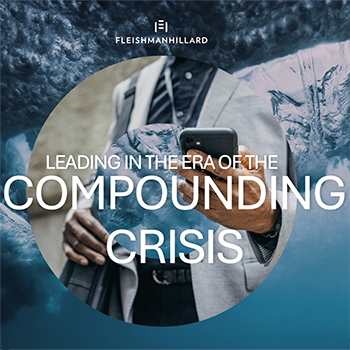
A difference in atmospheres
After much anticipation, party conference season for 2023 has now come to a close. With a smattering of policies and a touch of glitter, here is my take on what may well be the final conferences before the next General Election.
After attending Labour’s conference this week, it is clear that the party now firmly belongs to Keir Starmer. The atmosphere in Liverpool was full of hope, optimism and urgency, which was a stark contrast to the tone in Manchester just a week earlier. All eyes were on the Shadow Cabinet throughout Labour’s conference, with Rachel Reeves delivering what many have called her most poignant speech to date on Monday. Reeves told Conference she would be the “iron” Chancellor, while setting out her version of “Biden-esque” economic nationalism that would grow the economy from the bottom up, and the middle out. Although it was somewhat policy-light, Reeves announced a handful of measures including a new fiscal lock on ministerial spending, and the speeding up planning for major infrastructure.
But at the Conservative conference last week, the front bench dynamic was a different story. Sunak’s Cabinet were dominated by the right side of their party, as well as a sudden and popular appearance from Nigel Farage. While Labour shadow Ministers focused on their ambitions, unity and optimism, it seemed that the Conservatives were more focused on fighting it out to determine who might succeed Sunak if they lose the Election. Take Penny Mordaunt’s speech, for example, full of triumphalism, patriotism, and traditional conservatism as she urged her Party to ‘stand up and fight!’. This has been viewed by some as a warning to her Cabinet colleagues Kemi Badenoch and Priti Patel… and perhaps even to Liz Truss after the former Prime Minister drew crowds with the ‘Make Britain Grow Again’ rally.
Leader’s speeches
The speeches, however, were both delivered skilfully. Sunak spoke eloquently, with a focus on Conservative values and his belief on the importance of honesty, integrity and the ‘right decisions’ for our future.
Following days of briefing, he officially announced that the northern leg of HS2 would be scrapped and replaced with a new Northern Network. He went on to cover a range of areas, from a proposed smoking ban to eventually eliminate legal smoking altogether, to a new integrated system for A Levels, to a long-term plan for the NHS.
His reference to Thatcher was also notable – something which many of his Ministers had replicated over the preceding days – signalling a move towards traditional Conservatism and away from the more middle ground approach the likes of Cameron, May and even Johnson favoured. Seemingly, the Party is looking to secure its core base of voters, rather than rallying for any ‘new’ support – an interesting move given their position in the polls.
Starmer’s speech, in contrast, was full of ambition, positivity and a vision for the future he imagines for Britain. Where Sunak was measured, Starmer tried hard to spark energy, painting an optimistic and ambitious picture of what things could look like with Labour in power. He made a personal and direct appeal for moderate Conservative voters to support him in the 2024 election, using a somewhat policy-light speech to position Labour as having an “entirely new approach to politics”.
Starmer argued that his mission to fix Britain will be harder than that of Tony Blair. He covered much ground, from improving levels of home ownership, to providing more funding for the NHS by removing non-dom status, through to his commitment to push forward on climate change – a clear dividing line with the Conservatives. The main Hall and spill-over areas were full to the brim for his speech, with the audience cheering and standing to applaud throughout – there is no doubt that this is a Party ready and impatient to govern.
Looking ahead: was there a conference winner?
While Sunak’s speech was polished, his Conference was overshadowed by aggressive HS2 briefing and grapple for attention from the right of his Party. The general atmosphere in Manchester was often one of resignation and fatigue. Motivating his Party and building support will be a task indeed for Sunak over the coming months. Meanwhile, the energy and positivity at Starmer’s Conference was palpable.
Labour took the chance to position themselves as a Party ready to hit the ground running and to change Britain for the better. Certainly, the ambition and tone were there, but the detail on the policy wasn’t quite as clear to see as industry might have hoped. Starmer will need energy and resolve to continue his battle for No10, as well as a laser-like focus on the development of key policies as he moves closer to an Election.
Politics is never straightforward, but it could be said the Conservatives were rehearsing to be the Opposition Party while Labour were practising to govern. Stay tuned for our analysis as the Parties continue to battle it out.
Jess Kent, Senior Account Executive, Public Affairs team, FleishmanHillard UK
Find Out More
-
Leading in the era of the compounding crisis
October 2, 2025
-
AI in the Newsroom
August 26, 2025


